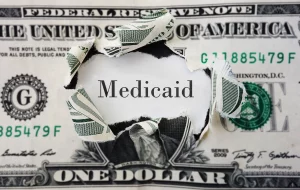In the complex landscape of American healthcare, few issues are as contentious and crucial as Medicare, the federal health insurance program primarily serving people aged 65 and older. At the heart of the debate lies the Medicare deductible—a fundamental aspect of the program that warrants careful evaluation, particularly in the context of the United States in 2024.
Understanding the Medicare Deductible

Before delving into its efficacy, let’s elucidate what the Medicare deductible entails. In essence, the deductible refers to the amount beneficiaries must pay out-of-pocket for covered services before Medicare begins to pay. This annual threshold varies across different parts of Medicare, such as Part A (hospital insurance) and Part B (medical insurance).
Challenges Faced
Critics argue that the current Medicare deductible structure poses significant financial barriers for many seniors, particularly those on fixed incomes or with limited financial resources. With healthcare costs escalating and the burden of chronic illnesses increasing, these out-of-pocket expenses can quickly become unmanageable, forcing some beneficiaries to forgo necessary medical care or medication—a predicament that raises serious public health concerns.
Furthermore, the lack of indexation to inflation exacerbates the issue over time, effectively eroding the purchasing power of beneficiaries and deepening disparities in access to healthcare.
Evaluating Efficacy
Assessing the efficacy of the Medicare deductible necessitates a multifaceted approach. Proponents argue that deductibles play a vital role in cost-sharing, encouraging responsible utilization of healthcare services and helping to curb overutilization—a phenomenon often cited as a contributing factor to escalating healthcare expenditures.
Moreover, proponents contend that deductibles are instrumental in preserving the financial sustainability of the Medicare program, shielding it from insolvency amid demographic shifts and escalating healthcare costs.
Potential Reforms
In light of the ongoing discourse surrounding Medicare, policymakers and stakeholders are exploring various avenues to address the deductible dilemma. Potential reforms range from adjusting deductible thresholds based on income levels to implementing value-based insurance designs that prioritize coverage for high-value services while incentivizing preventive care.
Additionally, proposals advocating for the integration of supplemental insurance options and the expansion of Medicare coverage to include dental, vision, and hearing services have gained traction, aiming to enhance the comprehensiveness and affordability of the program.
Conclusion
As the United States grapples with the formidable challenges posed by an aging population and rising healthcare costs, navigating the Medicare deductible dilemma remains a pressing imperative. Balancing the imperatives of fiscal prudence with the imperative of ensuring equitable access to healthcare services represents a formidable task—one that demands thoughtful deliberation, evidence-based policymaking, and a steadfast commitment to safeguarding the health and well-being of all Americans. As we venture into 2024 and beyond, the conversation surrounding Medicare will undoubtedly continue to evolve, shaping the contours of healthcare policy for generations to come.












